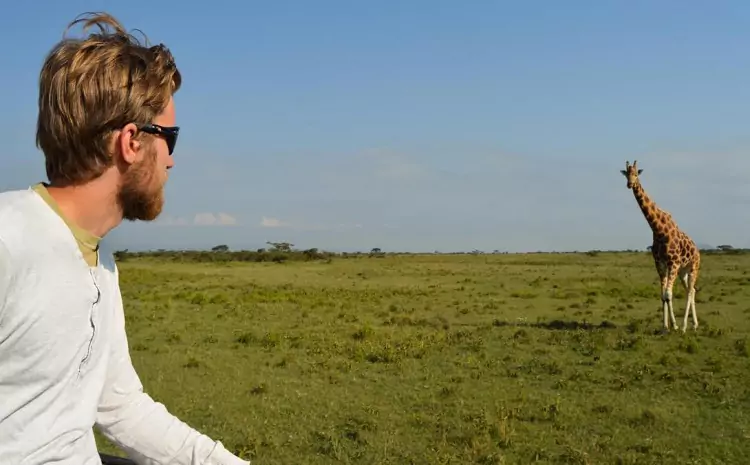Kenya, renowned for its breathtaking landscapes and abundant wildlife, is at the forefront of conservation efforts in Africa. The country’s commitment to preserving its natural heritage ensures that future generations can experience its wonders.
For travelers seeking a luxury safari in Kenya, understanding and supporting these conservation initiatives adds a profound and meaningful dimension to their journey. This blog explores the vital conservation work in Kenya and how luxury safaris contribute to these efforts.
The Importance of Conservation in Kenya
Kenya’s diverse ecosystems, ranging from savannahs and forests to mountains and coastal areas, are home to an extraordinary array of wildlife, including the iconic Big Five: lions, elephants, rhinos, leopards, and buffalo. However, these precious habitats face numerous threats, including poaching, habitat loss, climate change, and human-wildlife conflict. Conservation efforts are crucial to safeguarding these ecosystems and the species that inhabit them.
Key Conservation Initiatives in Kenya
Anti-Poaching Efforts
Poaching remains one of the most significant threats to Kenya’s wildlife, particularly for elephants and rhinos. To combat this, various organizations and government agencies have implemented rigorous anti-poaching measures. The Kenya Wildlife Service (KWS) plays a leading role, supported by non-governmental organizations like the David Sheldrick Wildlife Trust and Save the Elephants.
These organizations employ advanced technologies, such as GPS tracking and drones, to monitor wildlife and deter poachers. Additionally, they provide training and support for rangers who risk their lives to protect these animals. When you choose a luxury safari in Kenya, you directly support these anti-poaching initiatives, as many safari operators contribute a portion of their profits to conservation programs.
Community-Based Conservation
Community involvement is essential for the long-term success of conservation efforts. In Kenya, several initiatives empower local communities to take an active role in protecting their natural resources. Conservancies, such as the Maasai Mara Conservancies and Ol Pejeta Conservancy, work closely with indigenous communities to promote sustainable land use and wildlife conservation.
These conservancies provide employment opportunities and educational programs, ensuring that local people benefit directly from tourism. By opting for a luxury safari in Kenya, you help support these community-based initiatives, fostering a harmonious relationship between people and wildlife.
Habitat Restoration
Habitat loss due to agriculture, deforestation, and urbanization poses a severe threat to Kenya’s biodiversity. Several organizations are dedicated to restoring and protecting critical habitats. The Amboseli Trust for Elephants, for example, focuses on preserving the Amboseli ecosystem by working with local communities to restore degraded lands and protect migration corridors.
Luxury safari lodges often collaborate with these organizations, contributing to reforestation projects and habitat restoration efforts. By staying at eco-friendly lodges, you participate in the preservation of Kenya’s natural landscapes.
Endangered Species Protection
Kenya is home to several endangered species, including the black rhino, Grevy’s zebra, and the hirola antelope. Conservation programs targeting these species aim to increase their populations and protect their habitats. The Lewa Wildlife Conservancy is renowned for its successful rhino conservation efforts, while the Northern Rangelands Trust works to protect the critically endangered hirola.
During a luxury safari in Kenya, you can visit these conservancies and learn about the vital work being done to save these species. Your visit supports the ongoing efforts to protect and conserve Kenya’s most vulnerable wildlife.
Luxury Safari Kenya: A Sustainable Choice
Choosing a luxury safari in Kenya doesn’t just provide an unforgettable experience; it also plays a significant role in conservation. Here are some ways luxury safaris contribute to Kenya’s conservation efforts:
Financial Support
Luxury safari operators often allocate a portion of their revenue to conservation projects. By booking a luxury safari, you directly contribute to funding anti-poaching units, habitat restoration programs, and community development initiatives.
Eco-Friendly Practices
Many luxury lodges and camps in Kenya are committed to sustainable practices. They use solar power, recycle waste, and minimize their environmental footprint. Staying at these eco-friendly accommodations ensures that your visit has a positive impact on the environment.
Education and Awareness
Luxury safaris provide opportunities to learn about conservation from experts. Knowledgeable guides and rangers offer insights into the challenges facing Kenya’s wildlife and the efforts being made to protect it. This educational experience fosters a deeper appreciation for conservation among visitors.
Community Empowerment
By choosing lodges and camps that support local communities, you help create economic opportunities that reduce the need for activities harmful to wildlife, such as poaching or unsustainable farming practices. Community-based tourism ensures that conservation efforts are inclusive and beneficial for all.
Conservation in Kenya is a multifaceted effort involving anti-poaching initiatives, community involvement, habitat restoration, and endangered species protection. For travelers, a luxury safari in Kenya offers an unparalleled opportunity to witness the country’s natural beauty while contributing to its preservation. By supporting eco-friendly lodges and conservation-focused operators, you become a part of the solution, ensuring that Kenya’s wildlife and landscapes endure for future generations. Embrace the chance to make a difference while enjoying the adventure of a lifetime on your luxury safari in Kenya.

